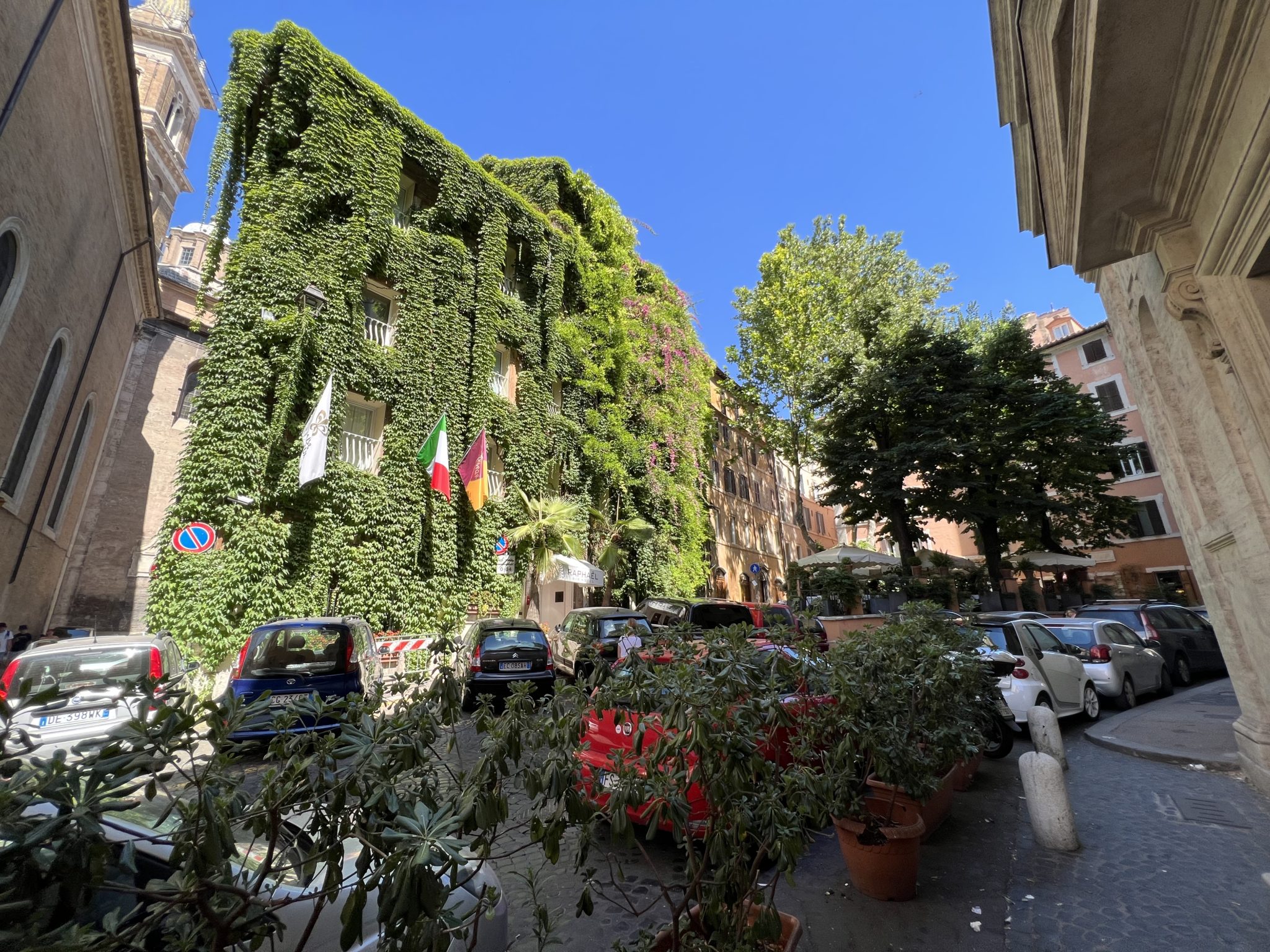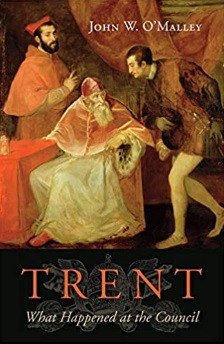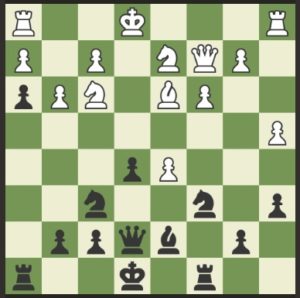
 Someone asked in email what I am reading right now. I just finished a reading, after decades, of Thomas Merton’s Seven Storey Mountain. [US HERE– UK HERE] It was lyrically beautiful.
Someone asked in email what I am reading right now. I just finished a reading, after decades, of Thomas Merton’s Seven Storey Mountain. [US HERE– UK HERE] It was lyrically beautiful.
Also, in the evening, I am working my way though Trent: What Happened at the Council by John O’Malley. [US HERE – UK HERE] Not exactly the most conservative of scholars, but he has done his homework. What really impressed me was his laying out of the context, leading up to the Council of Trent.

This impressed me:
Fifty days to elect Clement VII. Two days to elect his successor. Why such a contrast? Cardinals from contending camps converged in their dismay over Clement’s seemingly shilly-shallying policies, which many blamed for the sack of Rome. More important, the mood had shifted. Concern, even panic, over what the future might hold was widespread. The sack, a portent of worse things to come? The Turks, seemingly unstoppable on the eastern frontier, controlled the eastern Mediterranean and raided southern Italian cities almost at will. The Schmalkaldic League threatened war in Germany. Luther was still at large. His teachings had spread far and wide throughout northern Europe and, the unthinkable, had penetrated even into Italy. England was in schism. In this perilous time the French king seemed to be playing a duplicitous game. Something had to change. In Alessandro Farnese, who at sixty-seven was the oldest participant in the conclave, the others saw a man they thought was up to the task. Farnese had been a cardinal since 1492, for forty-two years. He knew the ropes and knew how to make them work. Widely respected for his diplomatic skills, his firmness of purpose, his intelligence, and his good judgment, he had not hidden his disagreements with Clement’s political policies or Clement’s disregard of his advice. In the rivalry between Charles and Francis, he believed the Holy See needed to maintain a policy of absolute neutrality. He had long and publically proclaimed the necessity of a council. He seemed to be the man of the hour. Shortly after his election as Paul III, he announced three goals for his pontificate….
Meanwhile,

Please remember me when shopping online. Thanks in advance.


































O’Malley is a very fine scholar, though I’d rather not guess about his stands on the controversial issues of our day. I’ve read his books on Vatican I and Vatican II. They really are informative. I’ll be reading his book on Trent soon.
Merton’s Seven Story Mountain is indeed lyrically beautiful. He wrote that in late 1940’s. From then he went on to take on ever more troublesome (and weird) ideas, eventually getting into Eastern religious thinking. Not to mention having an affair with a nurse about 1/3 his age. Though he was never explicitly censured as a heretic, more than one researcher into his life comment that he was sure headed that way.
To consider the tenor of Merton’s evolution in thought, as well as the ambience in which it occured, one can consider that at the Gethsemani Trappist monastery, he was made the “Master of Scholastic Philosophy” from 1951 to 1955, in spite of his having no undergraduate or graduate interaction with scholastic philosophy, and it seems likely that his only exposure to it was a series given at the monastery using a text by a manualist, J.S. Hickey. Of whom Merton had this to say:
What a crime it was — that utterly stupid course on “cosmology” that I had to take here [at the Trappist monastery of Gethsemani in the 1940s] (along with the other so-called philosophy in Hickey’s texts!). Really criminal absurdity! And at the time when the bomb was dropped on Hiroshima! Surely there were people in the order who knew better than [to] allow such a thing! Dom Frederic, no. He couldn’t help it. The whole Church still demanded this, and God knows, maybe some congregation still does. (237-238)
I have no idea how bad the Hickey text was, but it seems likely either that (a) the monastery was using an extraordinarily bad resource for philosophy, or (b) they were teaching the course in an extraordinarily bad way. And either way, they were manifestly using extraordinarily bad judgment in having a guy whose seemingly only exposure to scholastic philosophy was their own defective offering, be the master of it to others in spite of the fact that he despised it.
Found out yesterday that Fr. O’Malley died on Sunday. May he rest in peace.